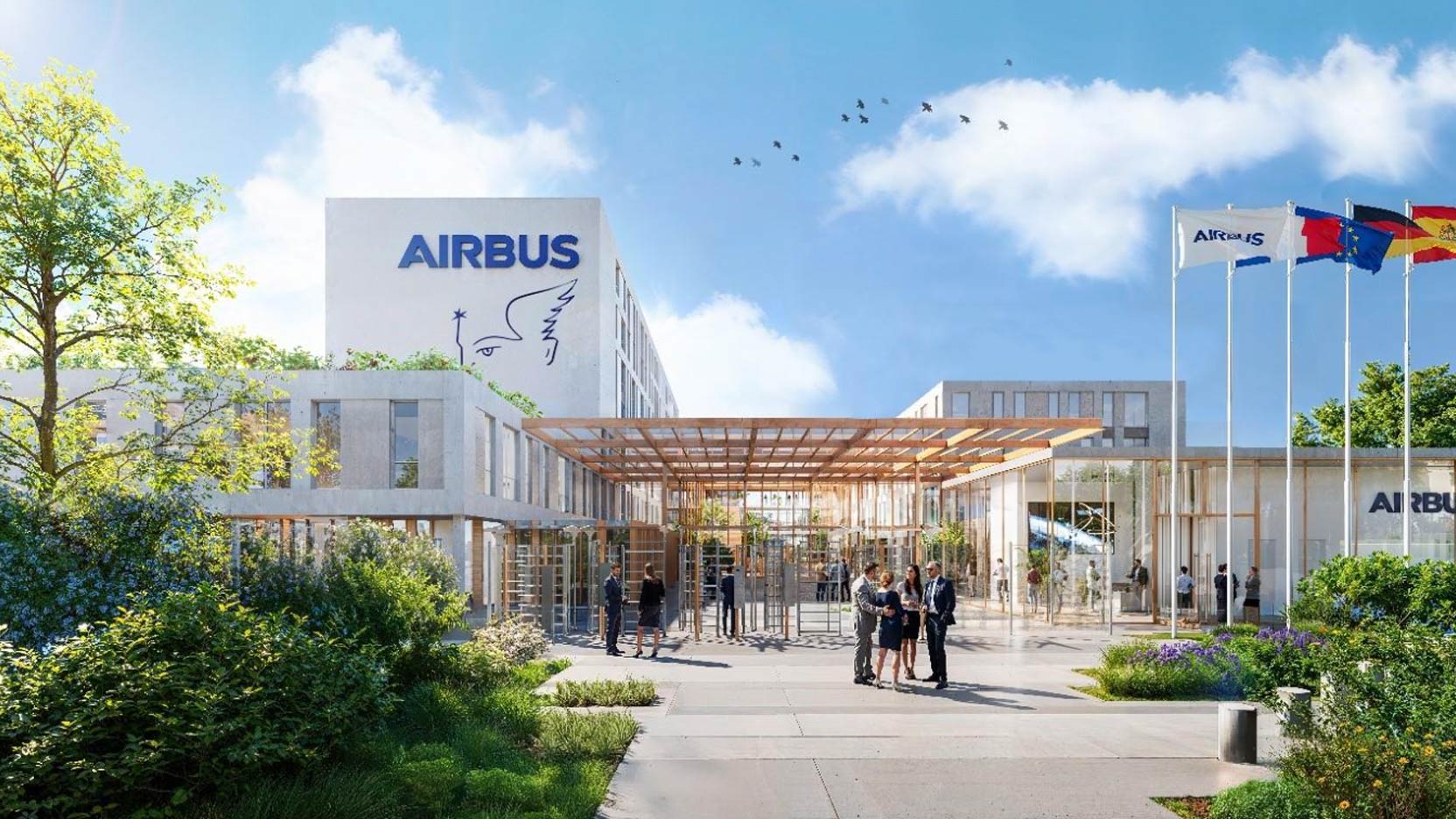In Montigny-le-Bretonneux, GA Smart Building is designing and building the Campus Grand Paris for Airbus Defence and Space: a 36,000 m² off-site constructed complex, designed to gather over 1,500 employees in a unifying, sustainable, and innovative working environment.
A project serving ecological transition and user comfort
Located in Montigny-le-Bretonneux, at the heart of the Saint-Quentin-en-Yvelines urban community (78), the Campus Grand Paris for Airbus Defence and Space will host more than 1,500 employees currently based at the Élancourt site.
Airbus Defence and Space is the Airbus Group branch dedicated to defence, security, and space systems. A major player in defence digital technology in Europe, the company develops technologies that support strategic autonomy and the protection of states.
The future campus of the European leader in Defence and Space was designed by architects Bechu & Associés and Kardham Architecture, with the ambition of bringing together the group’s teams from the Île-de-France region in a unifying, sustainable, and nature-oriented working environment.
The campus also aims to enhance the group’s attractiveness, foster the emergence of new talent, and support the development of its innovation ecosystem in defence, space, and digital sectors.
The Airbus Campus Grand Paris: focused on nature and climate resilience
The future campus will be integrated into a high-quality landscaped environment of 18,000 m², representing more than 43% of the total plot. Organized around existing green walkways, the site will include several gardens—hanging, sports, shared, and natural—with views over the vegetated areas of the wetland, which will be fully preserved to maintain the site’s ecological balance.
This biophilic and resilient design reflects the shared commitment of Airbus Defence and Space and GA Smart Building to developing sustainable, resource-efficient, and high-performance real estate.
With a focus on understated, mindful architecture, local supply chain enhancement, circular economy through reused materials, rainwater management and reuse, solar energy production via photovoltaic panels, and smart control using artificial intelligence—everything has been done to minimize the carbon footprint of both the construction phase and future operations.
Aligned with the European taxonomy criteria and compliant with the 2025 threshold of the RE2020 regulation, the Airbus Campus Grand Paris targets the highest environmental certifications:
- HQE® Sustainable Building – “Excellent” level,
- BiodiverCity for ecological and landscape quality,
- OsmoZ for employee well-being and health.
GA Smart Building will also offer an energy performance contract ensuring long-term energy efficiency and consumption control.
Off-site and low-carbon construction design
The Campus Grand Paris benefits from GA Smart Building’s integrated industrial model, based on synergy among its French factories:
- Low-carbon post-and-beam structure and Activ’Atom Concrete slabs produced by PREGA,
- Suspended concrete façades and aluminum joinery manufactured by Paquet Fontaine,
- Prefabricated sanitary modules produced by Ossabois.
Thanks to this off-site approach, the construction site benefits from controlled quality, optimized timelines, and a significantly reduced carbon footprint.
